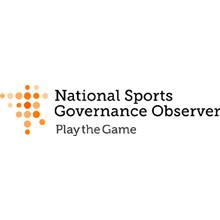The Indian government is set to introduce the National Sports Governance Bill 2025, a landmark legislative effort aimed at reshaping the landscape of sports administration across the country. As the bill promises to enhance transparency, uphold fair play, and amplify athlete voices, stakeholders in the sporting ecosystem are closely watching its development. This article delves into the key provisions of the bill, assessing its potential impact on Indian sports governance and the long-standing issues it seeks to address.
National Sports Governance Bill 2025 Aims to Amplify Athlete Voices in Policy Making
The newly introduced National Sports Governance Bill 2025 is set to revolutionize the landscape of Indian sports by ensuring athletes play a decisive role in shaping policies that directly impact their careers. By institutionalizing their representation, the bill seeks to create a more inclusive framework where athlete concerns about welfare, training infrastructure, and career transition support are addressed systematically. This legislative move emphasizes transparency and fair play, aiming to curb mismanagement and ensure that sports bodies operate with greater accountability.
Among the key provisions, the bill outlines the formation of dedicated panels featuring athletes from diverse disciplines. These panels will have the authority to recommend policies on:
- Selection criteria and grievance redressal mechanisms
- Anti-doping enforcement and ethical standards
- Funding allocation and sponsorship transparency
- Health and mental well-being programs
Furthermore, governance reforms will establish independent auditing processes to track how sports federations implement athlete-focused initiatives. The table below summarizes the bill’s primary stakeholder roles:
| Stakeholder | Role | Key Responsibility |
|---|---|---|
| Athlete Panels | Policy Advisors | Recommend athlete welfare measures |
| Sports Federations | Implementers | Ensure transparent governance |
| Independent Auditors | Oversight | Monitor compliance and fairness |
Ensuring Fair Play Strengthening Regulations to Combat Doping and Corruption
In a decisive move to uphold the integrity of Indian sports, the National Sports Governance Bill 2025 introduces stringent measures aimed at eradicating doping and corruption. The bill mandates independent anti-doping bodies with enhanced investigative powers, ensuring quicker and more transparent adjudication of cases. Additionally, it implements clear, enforceable penalties for violations, sending a strong deterrent message to potential offenders. By embedding athlete representation in governance structures, the legislation promotes accountability and empowers players to actively participate in shaping a clean sporting environment.
To bolster these efforts, the bill also emphasizes transparency through regular public disclosures and audited performance reports. Key features include:
- Mandatory drug testing protocols across all professional levels with random checks.
- Whistleblower protection mechanisms to encourage reporting of malpractice.
- Independent ethics committees to oversee fair recruitment and funding allocation.
- Capacity-building programs focusing on sports integrity and ethical conduct for coaches and officials.
| Key Focus Area | Initiative | Expected Outcome |
|---|---|---|
| Anti-Doping | Random tests & accelerated investigations | Reduction in doping incidents |
| Corruption Control | Ethics committee with whistleblower protection | Enhanced transparency in management |
| Athlete Empowerment | Mandatory athlete representation in boards | Greater accountability |
Promoting Transparency Measures to Increase Accountability in Sports Federations
In a landmark push toward improving governance within Indian sports, the proposed legislation mandates stringent transparency norms for all registered sports federations. By requiring public disclosure of financial statements, election procedures, and decision-making processes, the bill seeks to dismantle long-standing opacity that has beleaguered the sector. This initiative is expected to empower athletes and stakeholders alike, ensuring that resource allocation and policy decisions are subject to continuous public scrutiny and accountability.
Key transparency measures outlined include:
- Mandatory annual audits to be published on federation websites.
- Real-time reporting of fund disbursements and sponsorship agreements.
- Open electoral processes with third-party monitoring to curb malpractice.
| Transparency Measure | Expected Impact |
|---|---|
| Annual Audits | Financial clarity and fraud prevention |
| Real-time Reporting | Improved donor and athlete trust |
| Open Elections | Democratic representation and fairness |
Recommendations for Inclusive Governance and Enhanced Monitoring Mechanisms
To propel Indian sports governance into a new era of transparency and fairness, it is crucial to integrate the perspectives of athletes at every stage of policymaking and implementation. Establishing athlete committees within national federations would ensure that their concerns, ranging from training conditions to disciplinary procedures, receive dedicated attention. Furthermore, mandatory representation of women and marginalized communities on decision-making boards can cultivate a more inclusive environment that reflects the nation’s diversity.
Robust monitoring mechanisms must complement these structural reforms. This involves the deployment of an independent oversight body, tasked with regular audits of financial transactions, selection processes, and dispute resolution outcomes. The use of digital platforms for transparent reporting can bridge gaps often exploited by malpractice, while timely publication of performance metrics would bolster public trust. The table below outlines key monitoring mechanisms proposed for effective governance:
| Mechanism | Purpose | Expected Outcome |
|---|---|---|
| Independent Audits | Financial transparency and accountability | Reduced corruption and fund misuse |
| Digital Reporting Portals | Real-time disclosure of governance data | Enhanced stakeholder trust |
| Regular Performance Reviews | Assessment of federation and athlete progress | real-time reporting to increase openness.
If you need me to help with anything else, such as formatting or expanding any sections, please let me know! The ConclusionAs the National Sports Governance Bill 2025 moves toward implementation, it marks a pivotal shift in Indian sports administration-placing athlete voices, fair play, and transparency at the forefront. While challenges remain in ensuring effective enforcement and stakeholder cooperation, this legislation represents a significant step toward revamping governance structures that have long hindered the nation’s sporting potential. The success of the Bill will ultimately depend on sustained commitment from policymakers, sports bodies, and athletes alike to foster an environment of accountability and integrity in Indian sports. The coming months will be crucial in observing how this landmark reform translates into tangible progress on the field.
Add A Comment
|





